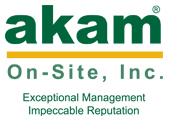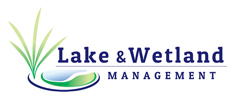
Welcome to the Board
Part II
Published February 2020
Editor’s Note: The following advice is provided with the goal of assisting board members in carrying out their many responsibilities. While it can’t cover every situation, there is much useful information provided by various industry experts. Part One was published in the January 2020 issue.
 Best Interest vs. Self-Interest
Best Interest vs. Self-Interest
By Barney Weinkle
In order to have an effective board of directors, they must be dedicated to the best interest of all unit owners ahead of any personal agenda or self-interest. The board’s governance plays a critical role in having effective association management that can increase pride of ownership and property values. A united board with strong leadership and communication is paramount so that unit owners are informed and trust their building is in competent hands. Capital projects are inevitable to properly maintain your building, and an aggressive preventive maintenance plan will reduce the cost of repairs. Many board members are accomplished professionals. However, they are rarely prepared for the complexities that come with a complex construction project.
It is imperative to have an experienced property manager and/or owner’s representative to oversee the process. Proper due diligence can save hundreds of thousands of dollars as well as ensure that your project is completed on time and in budget.
Barney Weinkle is a managing director with AKAM On-Site. For more information, please call him at (954) 843-2526, email at bweinkle@akam.com, or simply visit our website at akamonsite.com.
 Don’t Underestimate the Value of Streamlined Communication
Don’t Underestimate the Value of Streamlined Communication
By Beth Gilbert
In today’s on-demand economy where consumers of all industries expect instant gratification and communication, now is not the time to fall behind, especially in the community association management industry. When dealing with people’s homes and property, timely communication in the method they prefer is key to keeping them happy and retaining their business. It’s time to completely replace haphazard communication with texting, email, and on-demand information that can be self-served through online portals. The more information that homeowners and board members can get on their own, the fewer calls and drop-ins you’ll have to handle in the office. Enable automation and bulk notification whenever possible to keep your board and homeowners informed about the important association business. Not only does this show them that you’re on top of their needs, but also it positions your business as modern and cutting-edge while freeing up your time to focus on larger business goals.
For more information on AppFolio, call (866) 648-1536 or visit appfolio.com/hoa.
 Understand the Bid
Understand the Bid
By ACPLM
On a frequent basis, needed work does not allow for a professional to develop the scope of work for bidding purposes. However, when that occurs, you can still get apples-to-apples bids by selecting a trusted, experienced, and knowledgeable sales estimator/consultant to inspect the areas of needed work, walk the job thoroughly to discuss all details and nuisances, and provide a bid. Once you receive the bid, use those specifications to solicit your remaining bids. If other bidders have different ideas they would like to present, then allow them to include those separately, as options, with separate pricing. This will enable you to not only understand the bid but also obtain the information needed to make an informed decision or recommendation.
For more information on ACPLM, call (888) 959-9637 or visit www.acplm.net.
 The Early Bird Gets the Asphalt
The Early Bird Gets the Asphalt
By Connie Lorenz
I can’t believe it’s already February and our boards are starting to put together their RFPs for the work they want completed over the summer. It’s understandable that boards plan to complete major projects like roadways and parking lots when their occupancy is down.
As a contractor, our phones are pretty quiet November through March while our northern residents enjoy their season. When March comes, we always receive an influx of calls demanding our attention immediately, before the boards wind up business for the summer and everyone returns home.
Remember, since you are not the only one with this mindset, be sure that if you are planning to schedule work on your parking lots and roadways for this summer, then get your requests in early! It is much easier for us to update a bid than to fit you in with the 200 other communities that want to wrap up their season in March! The early bird gets the worm, or in this case, the asphalt! May your 2020 rock!
Connie Lorenz is president of Asphalt Restoration Technology Systems. For more information, call (800) 254-4732 or visit www.asphaltnews.com.
 Start Your Term off Right
Start Your Term off Right
By Lilliana M. Farinas-Sabogal
Whether this is your first time serving on the board or your third term, there are several items that board members should review near the beginning of their term that can make the rest of the term more productive. Though not nearly an exhaustive list, here are some ideas:
- Review contracts—Many service contracts have terms that will automatically renew unless the association gives notice prior to the contract’s expiration. Catching these and taking timely action can put the association in a position where it might be able to negotiate better terms or even find a better provider.
- Review insurance coverage—Has the agent reviewed the options with the association? Is there a better carrier, different type of coverage options, or other changes that can/ should be made?
- Review staffing—Is the association running as effectively and efficiently as possible? Would more or less staffing help?
- Review the budget—Many new boards begin their term with a budget that was prepared by the prior board. Budgets can be amended if needed; should yours be?
- Review maintenance schedules—Make sure there is a protocol in place for those items in the community that require regular maintenance and that this maintenance is occurring.
Lilliana Farinas-Sabogal is a shareholder in Becker’s Community Association and Business Litigation practice groups. For more information, email LFarinas@beckerlawyers.com, call (305) 262-4433, or visit beckerlawyers.com.
 The 25 Percent Rule
The 25 Percent Rule
By Justin Cox
When a hurricane sweeps through Southwest Florida, it can ravage homes, causing roof tiles to chip, crack, break, and even fly away. Irma was no exception, and she took no prisoners. There is a rule that many Floridians are unaware of regarding roofs; it is the 25 percent rule. This is a statute that determines what percentage of a roof can be repaired after a hurricane. It clearly states, “Not more than 25 percent of the total roof area of a roof section of any existing building or structure shall be repaired, replaced, or recovered in any 12-month period unless the entire existing roofing system or roof section is replaced to conform to requirements of the code.” To put it simply, it means that if one quarter of the roof has damage, such as broken tile with the underlayment showing, then insurance companies must cover an entire roof replacement. As of Sep-tember 10, 2020, the time will have run out to file a claim with your insurance company for roof damage resulting from Hurricane Irma. Let us inspect your roof to see if you qualify for a full roof replacement.
For more information on Elias Brothers Group Roofing Division, call (239) 293-2442 or email marketing@ebgcontracting.com.
 New to the Board? Get to Know Your Security Provider(s)
New to the Board? Get to Know Your Security Provider(s)
By Brie Shouppe
If you’re new to your association’s board, welcome! There are likely many service providers employed by your community, including a security vendor(s). Working with a security company as a board member can be quite different from being a resident.
First, you will want to find out if there is only one security company servicing your association. For example, the company that services the gates at the entrance, pool, or other area may be different from the company that provides a visitor verification system, video surveillance, or additional access control.
Once you know the company servicing each system used at your community, you will want to provide them updated contact information including phone numbers and email addresses. Notifying a company of changes to an association board should initiate the company’s steps in educating new board members on the systems provided and any procedures for requesting repairs, data records, video footage, etc.
Brie Shouppe is the Manager of Business Development & Marketing for Envera Systems. For more information on Envera Systems, call (855) 380-1274 or visit www.EnveraSystems.com.
 Reserve Studies—What It Is and Is Not
Reserve Studies—What It Is and Is Not
By Anastasia Kolodzik, RSS, CAM, Vice President
A reserve study is a long-term budgeting tool utilized by common interest communities that provides a long-term timeline (usually 30 years funding) of costs and dates for replacement of common area components. Common areas such as roofing, paint, asphalt/paving, and anything with a replacement cost of $10,000 or more all have limited useful life expectancies, and a reserve study provides a community the necessary information to adequately save for the expected replacement of these items over time. A professional reserve study would lay out the funding plan to avoid such problems as special assessments. A reserve study is not a budget. It is also not written in stone. Reserve studies are living documents that change from year to year and project to project. Replacement costs, historical maintenance, weather, location, and accessibility all play a part in a reserve study.
Anastasia Kolodzik is a licensed community association manager and certified reserve study specialist. For more information on Expert Inspectors, call (866) 480-8236 or visit www.flinsurancevaluations.com.
 Newly Elected and Ready to Learn
Newly Elected and Ready to Learn
By Christopher L. Pappas, Senior Vice President
Congratulations on being elected to your community association’s board of directors! As a newly elected board member, it is important to become familiar with your association’s governing documents and have a timely meeting with the association’s attorney to review any outstanding legal matters. Additionally, the creation of a formal collections policy and strategy to address delinquent unit owners should be one of your first discussions with the attorney. Ensuring that an effective collections policy is in place and becoming familiar with the laws pertaining to unpaid assessments and how the association may lawfully collect these unpaid assessments is imperative to the process. Your association’s attorney and your professional management company can effectively help guide you through best practices in all areas of collections.
Christopher L. Pappas is Senior Vice President for FirstService Residential. For more information, call (877) 278-6468 or visit www.fsresidential.com.
 Bat Exclusions
Bat Exclusions
By John Greenwood
Welcome to the board from Friends of Bats! We are a well-established (almost 20 years), family-owned and -run company focused exclusively on the safe and humane removal and guaranteed exclusion of bat colonies that occupy buildings that are used or inhabited by people. Dan Bozone, our president, owns and runs the company, and our management and crew are made up exclusively of family members.
Because of their importance to the environment, all species of Florida bats are protected by Florida state law; but when they begin to intrude into homes and businesses that people occupy, they can cause significant concern and ultimately damage to the structure of buildings and to the health of the inhabitants. Fortunately, the Florida Fish and Wildlife Conservation Commission permits us to perform exclusions (removal) under very strict conditions. We guarantee our work; our initial on-site inspections and subsequent report/proposal submission process is free; and our work is—and always has been—exclusively dedicated to safe, effective, and humane bat colony exclusion.
John Greenwood is the Technical Consultant for Friends of Bats and can be contacted at john@friendsofbats.com, 1-888-758-BATS (2287), www.FriendsOfBats.com.
 Boards, Beware of Holding “Executive Sessions”
Boards, Beware of Holding “Executive Sessions”
By Amanda K. Barritt, Esq.
I am often asked by association boards if the board can meet in “executive session” to discuss a sensitive topic, such as a personnel matter or dispute with an owner or neighborhood association, without members present. Florida homeowners and condominium associations are subject to what many refer to as association “sunshine laws.” Under Florida Statutes Chapter 720 for HOAs and Chapter 718 for condominiums, association board meetings are deemed to occur when a quorum of the board gathers to conduct association business. All board meetings must be properly noticed and open to the members except in these cases:
- Meetings between the board and its attorney with respect to proposed or pending litigation, or
- Meetings of the board to discuss personnel matters.
Such “closed” meetings must still be properly noticed to the membership in accordance with the association bylaws. Boards should consult with their legal counsel prior to holding a closed meeting.
Amanda K. Barritt is Florida Bar Board Certified in Condominium & Planned Development Law and serves as chair of the firm’s Real Estate and Condominium and Homeowners Associations Practice Group. She may be reached at amanda.barritt@henlaw.com or by phone at (239) 344-1108.
 Financing Association Improvements
Financing Association Improvements
By Karen Shawdee
Are your facilities and your association prepared for the winter season? If you are looking to make repairs, undergo a major renovation, or upgrade your facilities, it’s important that your board members and management company have an understanding of the options available for financing these improvements. Speak with your banker about the pros and cons of obtaining a loan versus dipping into your cash reserves. Ask about financing vehicles, repayment terms, and even interest-only payment options.
Another thing to review on a routine basis is FDIC insurance for your association’s funds. Despite insurance limits, there are ways to receive unlimited FDIC coverage through Insured Cash Sweep (ICS) accounts and the CDARs (CD) program. These accounts offer a simple and easy way to insure your funds while earning interest at no cost to the association.
Karen Shawdee is a commercial relationship manager at Iberiabank. For more information, visit www.iberiabank.com.
 Use “Dry Season” to Survey Damage and Plan Repairs of Waterways
Use “Dry Season” to Survey Damage and Plan Repairs of Waterways
By Stuart Fischer, Owner
When boards of directors return to their winter homes, they will likely see some changes to the landscape. For those arriving in early winter, it’s likely that lakes and canals will be substantially lower due to Florida’s “dry season.”
This situation provides them with the unique opportunity to survey damage done by heavy rains and possibly hurricanes. The directors can see exposed shorelines and collapsed land causing dangerous situations and, perhaps, exposed cable lines. With little rain, it’s also possible that these waterways are stagnant, suffering from poor water flow. Invasive plants can also be more visible at this time.
These are among the problems which can surface if these waterways are not properly managed and periodically inspected.
Directors should look for the following:
- Identify non-native plants and have them removed in favor of native plants that provide important nutrients for fish and other wildlife.
- Consider dredging the lake/pond bottoms, a strategy that will enhance water movement. Fountains while attractive also aerate and “move” water.
- Shoreline erosion is dangerous and can result in injuries to residents and those operating heavy equipment. We recommend ShoreSOX® and DredgeSOX® as the most cost-effective and efficient systems to restore eroded shorelines.
Stuart Fischer is owner of Lake & Wetland Management. With offices throughout Florida, the company can serve all your environmental needs. Please call (855) 888-LAKE (5253) or visit www.lakeandwetland.com for more information.
 Responding to Records Requests by Unit Owners
Responding to Records Requests by Unit Owners
By Roberto C. Blanch, Partner
Requests by unit owners to review official records of their community association should not present any difficulties for Florida condominium associations and HOAs, yet record requests often become needlessly contentious.
Florida community associations are required to provide access to owners or their authorized representative for the inspection of their official records within 10 working days after receiving a written request. Therefore, while condominium associations in Florida may establish reasonable rules specifying the frequency, time, location, and manner of record inspection and copying, they cannot deny access.
Association directors and property managers with any questions or concerns regarding member requests for official record inspections should always consult with qualified and experienced community association attorneys.
Our firm’s attorneys write about important issues for associations at www.FloridaHOALawyerBlog.com, and we encourage association members, directors, and property managers to enter their email address in the subscription box in the blog in order to automatically receive all our future articles.
Roberto C. Blanch is a partner with the Siegfried Rivera law firm. For more information on Siegfried Rivera, visit www.SiegfriedRivera.com or www.FloridaHOALawyerBlog.com or call the law firm at (305) 442-3334.
 Welcome New Board Members—You Don’t Know What You Don’t Know
Welcome New Board Members—You Don’t Know What You Don’t Know
By Joanna Ribner
Now that you are on the board, you need to become familiar with the infrastructure of your building. It is not all about landscaping, carpets, and elevators. Did you know that the entire trash chute system falls under the jurisdiction of fire safety? Or that the lint that builds up in the dryer vents is potentially the most flammable material in your building?
Vendors love the chance to educate boards! Please call us. We will happily answer questions and take the time to give you a mini-course in some of the areas you may not be familiar with. Maybe suggest that board meetings include a short presentation from one of your vendors each meeting. That is an easy way to learn and meet the people you will be relying on.
An educated board member is an asset to the residents, the manager, and the vendors because more prudent decisions get made.
Joanna Ribner is president of Southern Chute. For more information on Southern Chute, call (866) 475-9191 or visit www.SouthernChute.com.




